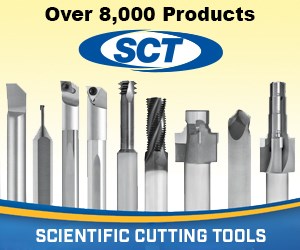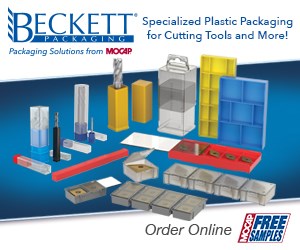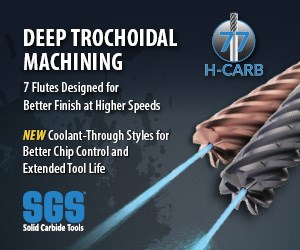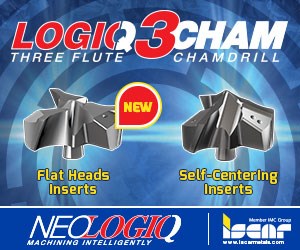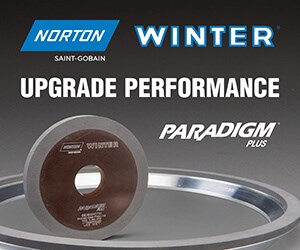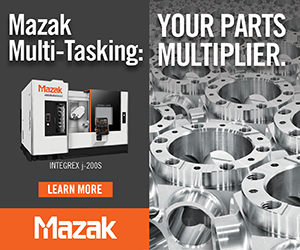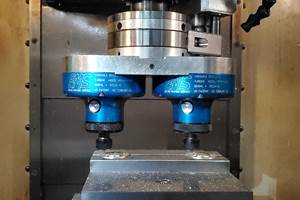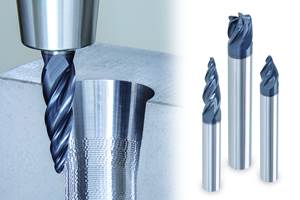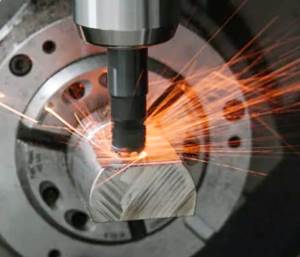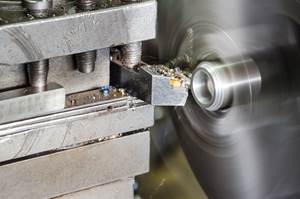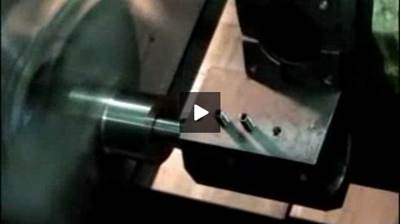PCBN Grades Facilitate Complete Process Revamp
Faced with a difficult thread-machining operation in extremely hard material, this pump manufacturer turned to its cutting tool supplier for help. A new combination of PCBN insert grade and geometry improved part quality, reduced cycle time and eliminated the need for annealing, pre-machining and heat treating.
The term “supplier” can seem inadequate to describe the role of equipment manufacturers that have no qualms with leveraging their own resources to help customers improve efficiency and competitiveness. Such companies’ relationships with customers might be described more aptly as partnerships.
A case in point is the collaboration between pump manufacturer A.R. Wilfley & Sons and cutting tool supplier Seco Tools to address a bottleneck that represented uncharted territory for both. The challenge: efficiently machining Acme 2 internal threads in material with a hardness rating of 70 Rc. Extensive testing at Seco’s Troy, Michigan tech center led to the development of a new PCBN grade and geometry that enabled A.R. Wilfley to reliably cut the threads when the material was in its hardened state, eliminating the need for pre-machining and heat treating. Thread quality also improved. This success further led A.R. Wilfley to explore tooling options on an unrelated application, resulting in the elimination of secondary operations there as well.
Based in Denver, Colorado, A.R. Wilfley & Sons specializes in the manufacture of centrifugal pumps with advanced seal technology for abrasive and corrosive applications. Abrasion resistance is essential to achieving sufficient operating life and reliability for these pumps, so the company commonly works with materials that range in hardness from 60 to 65 Rc. The typical process is to pre-machine these cast materials in a “soft” state with solid carbide tooling. Then, components are sent out for heat-treatment—a process that can take about two weeks—before returning to the shop floor for final machining with ceramic inserts.
Although not entirely efficient, this method had been employed effectively for many years. Recently, however, one tough job caused the company to reevaluate. To meet the required tight tolerances and to reduce costs, the company sought to machine this particular series of pumps in the hardened state, as opposed to casting, annealing, pre-machining and heat-treating followed by final machining to bring the part to spec.
However, the design of these pumps depended on the use of chilled white iron that was even harder than the varieties of that material typically machined at A.R. Wilfley. A particular barrier was the machining of an internal ACME 2 thread in the 70-Rc material. Tools wore out quickly, and the thread’s depth, pitch and stringent surface finish requirements added to the difficulty. “When we found that this area would be a bottleneck in our product development and production, we were determined to find a quicker and more cost-effective operation,” says Link Wilfley, owner and general manager.
Wilfley’s machine shop supervisor Jeff Haugen contacted local Seco sales representative John Mattos to inquire whether the supplier had experience in this area. Mr. Mattos, in turn, contacted Chad Miller, Seco’s product manager of advanced materials. After conducting a productivity-cost analysis, Seco suggested that PCBN tooling would be the best bet for improving the quality and effectiveness of the thread milling operation. Compared to the ceramic and hard carbide tooling A.R. Wilfley had first considered, a PCBN grade would enable faster, longer machining and reduce part costs. According to Seco, those benefits result primarily from the insert material’s hardness, which improves tool life and enables machining at more aggressive parameters.
After conducting a productivity-cost analysis, Seco suggested that PCBN tooling would be the best bet for improving the quality and effectiveness of the thread milling operation. Compared to the ceramic and hard carbide tooling A.R. Wilfley had first considered, a PCBN grade would enable faster, longer machining and reduce part costs. That’s primarily a factor of the insert material’s hardness, which improves tool life and enables machining at more aggressive parameters.
However, with support from Seco’s global product development team, Mr. Miller discovered that although the cutting tool supplier had machined Acme threads in white iron, it had never produced an Acme 2 thread this coarse using PCBN. So he arranged for a world-wide conference call with Seco experts, including Troy-based threading and turning product managers Don Halas and Don Graham, to discuss how such an application might work. After considering the various ideas and theories, the Seco team in Troy set out to discover the right combination of PCBN grade and geometry as well as the optimum cutting conditions for creating the thread.
The team created a number of inserts for testing at its Troy technical center on an Integrex turn-mill from Mazak (Florence, Kentucky). With no published cutting data to suggest which feeds, speeds and cutting depths would be successful, Seco had to rely on its own knowledge base. Failure analysis study of the inserts and surface analysis of the part helped determine which parameters worked best. In the end, after a half dozen trials and re-machining the boring bar toolholder with a deeper pocket to improve stability, the cutting tool manufacturer felt it had developed a successful process.
Seco started with PCBN350, a tough grade developed specifically for white cast iron applications, to turn the component’s OD. For the more demanding threading operation, it employed PCBN200 at 330 sfpm and an 0.003-inch cutting depth. According to the company, the advantage of this latter grade lies in its binding material. Whereas most PCBN grades use ceramic as the glue that holds the grit together, PCBN200 features a tougher metal binder that is less susceptible to chipping.
Good news became even better after tests performed by A.R. Wilfley’s metallurgist George Calboreanu, Ph.D. showed that the threads were higher quality than those produced by the old method. “Not only was this a better part, but we reduced our lead time by about two weeks, and we have a more reliable process,” Mr. Wilfley says.
Seco’s Mr. Graham adds that many people tend to get “sticker shock” when they see PCBN insert prices. “However, with PCBN we can run the machine faster and more predictably. From this perspective, it was actually cheaper than ceramic,” he explains.
The success of this operation led A.R. Wilfley to wonder whether it could achieve similar efficiency gains on other products. The company decided to let Seco experiment with one of its most complex parts to see if the supplier could develop a process for thread milling holes as small as 0.25 inch in hard iron. If successful, that process would result in significant cost savings.
Several trials at the cutting tool manufacturer’s technical center led to a two-stage process involving a Jabro solid carbide end mill and a solid carbide thread mill—both standard, off-the-shelf tools. In the first stage, the Jabro end mill generated a tapered hole via helical interpolation at a 0.5-degree ramp angle, 100 sfpm and 24 ipm. In the second stage, the company employed a 1/4x18NPTF-16R5 thread mill, compensating 0.002-inch per side to properly gage the internal threads.
The Jabro produced more than 30 holes per tool, while the thread mill lasted through 24 holes. The cutting tool manufacturer notes that an important component in this process was the use of heat-shrink technology, which provides higher rigidity and concentricity than a standard connection. At A.R. Wilfley, the resulting improvements in tool life, surface finish and dimensional control has more than justified the additional cost. In fact, since that initial test, the company has used this technique on materials as hard as 70 Rc.
Through close collaboration with its cutting tool supplier, A.R. Wilfley has simplified its manufacturing operations. Rather than the previous five-step process (casting, annealing, pre-machining, heat treating and final machining), many of the company’s most critical parts can now be produced in two (casting and final machining). This has also eliminated some inspection steps, handling and paperwork.
However, for this quality-minded company, the fact that finished parts are now higher-quality and more reliable is even more important than cost and cycle time savings. “Seco has gone the extra mile and found a true breakthrough,” Mr. Wilfley says. “Thanks to their efforts, we will continue to push the level of the quality and dependability of our product offerings.”
Related Content
Twin Spindle Design Doubles Production of Small Parts
After experiencing process stalls in the finishing stage of production, Bryan Machine Service designed an air-powered twin spindle and indexable rotating base to effectively double its production of small parts.
Read MoreTungaloy Expands Line of Barrel-Shaped End Mills
The new SolidMeister barrel end mills are efficient tools for complex 3D-surfacing operations used in mold making, orthopedic implants and the machining of other freeform surfaces.
Read MoreBest Practices: Machining Difficult Materials
Cutting hardened steel, titanium and other difficult materials requires picking the right tools, eliminating spindle runout and relying on best practices to achieve tight part tolerances.
Read MoreChoosing Your Carbide Grade: A Guide
Without an international standard for designating carbide grades or application ranges, users must rely on relative judgments and background knowledge for success.
Read MoreRead Next
Threading in White Iron
VIDEO: A PCBN200 insert from Seco is employed to create TR55 DIN trapezoidal internal threads to Acme 2 specification in 70-rc cast white iron.
Read More3 Mistakes That Cause CNC Programs to Fail
Despite enhancements to manufacturing technology, there are still issues today that can cause programs to fail. These failures can cause lost time, scrapped parts, damaged machines and even injured operators.
Read More
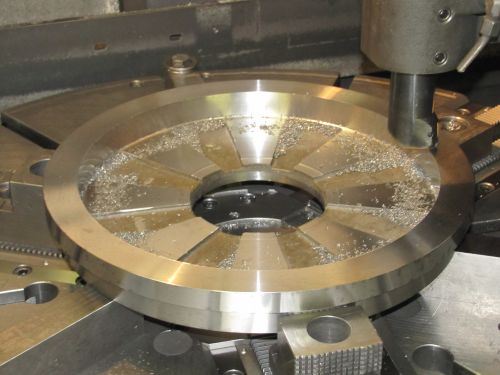
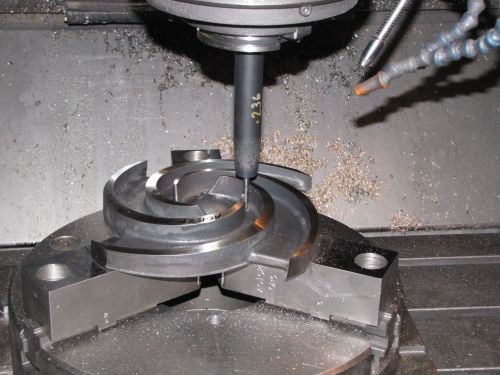
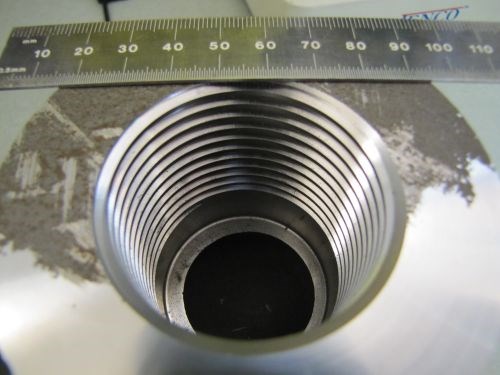
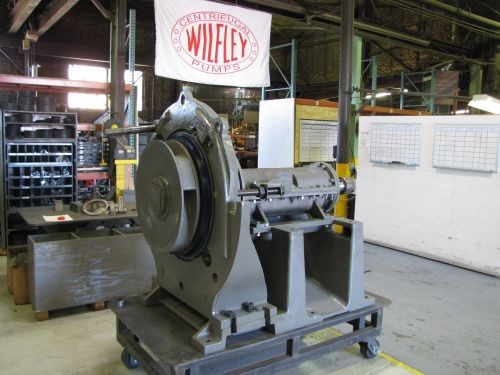






.png;maxWidth=300;quality=90)

